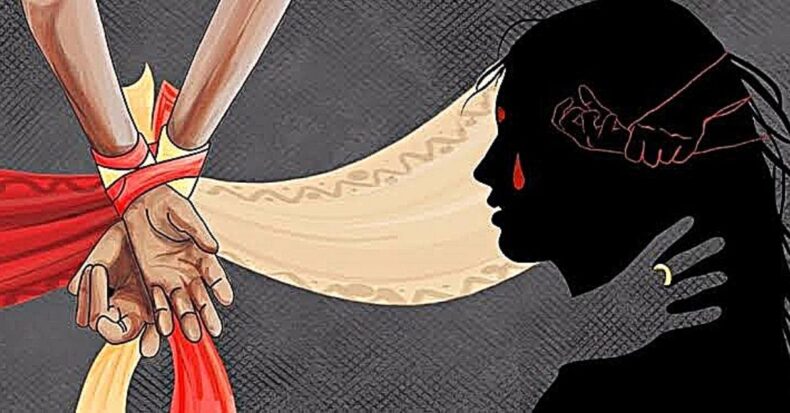Marital Rape INTRODUCTION
Rape is the unlawful intercourse of a woman without her consent, whether owing to bodily desire or hazards or due to the perpetuator’s dishonest display.
In India, rape by an alien is punishable under sections 375 and 376 of the Indian Penal Code. Surprisingly, it expressly excludes marital rape from the scope of criminal liability. Marital rape is when a husband has sex with his better half without her consent or under duress.
The patriarchal system that governs Indian families has always seen women as the property of their significant others or guardians. As a result, rape was regarded as a robbery of women’s property and a crime against a spouse or guardian
This belief system has influenced our legislators to disregard the crime of spouse rape by granting it the shield of the spouse’s wedding right, thereby silently tolerating that women are nothing more than a protest of her better half’s sexual satisfaction, with no will of her own over her sexuality. This decision established the ladies’ right to equality and consistency.
This belief system has influenced our legislators to disregard the crime of spouse rape by granting it the shield of the spouse’s wedding right, thereby silently tolerating that women are nothing more than a protest of her better half’s sexual satisfaction, with no will of her own over her sexuality. This decision established the ladies’ right to equality and consistency.
RECENT JUDGEMENT
The Kerala high court said that marital rape is a valid ground for divorce, even though it is not punishable in the country. The court upheld a family court’s decision to allow divorce on the grounds of “marital cruelty.”
The appeal of a man who had challenged a family court ruling permitting his wife’s application for divorce on the grounds of cruelty was dismissed by a division bench of justices Mohammad Mushtaq and Kauser Edappagath. The court ruled that a spouse’s “insatiable desire for wealth and sex” constituted cruelty.
“In a marital relationship, sex is a reflection of the spouse’s intimacy. The woman’s testimony shows that she was subjected to many forms of depravity against her consent. Marital rape happens when a husband believes his wife’s body belongs to him, according to the bench.
The offence of rape is defined in Section 375 of the Indian Penal Code (IPC) by six descriptions. “Sexual intercourse or sexual activities by a man with his wife, the wife not being under 15 years of age, is not rape,” according to one Exception.
CONCLUSION
Even though the Indian Penal Code has been modified several times, the Exception has remained unchanged. In Independent Thought vs Union of India, the Supreme Court struck down the Exception insofar as it relates to a girl child under the age of eighteen
The Law Commission of India, in its 172nd Report on the Review of Rape Laws, rejected the request made by “Sakshi,” a women’s rights organization, to recommend the deletion of the Exception, stating that it could amount to inappropriate interference with the marital relationship.
However, it was suggested that the wife’s age be increased from fifteen to sixteen.
Sakshi believes that if a man who gives his harm or any other physical injury is subject to the same punishment as any other person, there is no reason why a concession should be granted in the case of rape/sexual assault is beyond 15/16 years old.












